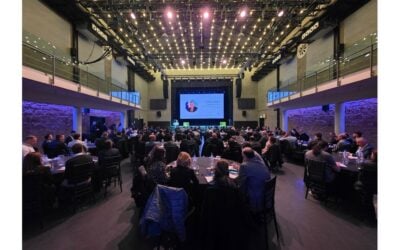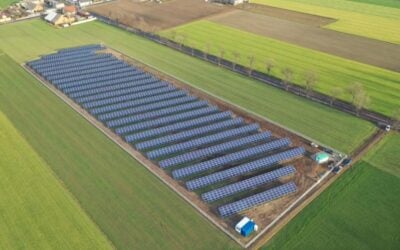
Lithium-ion gigafactory company Northvolt’s energy storage system (ESS) assembly factory in Poland has won a share of €1.8 billion (US$1.8 billion) in EU grant funding, along with a battery recycling plant in north France.
Northvolt’s ‘NorthSTOR PLUS’ ESS assembly plant in Gdańsk will assemble ESS solutions using the company’s batteries, which it claims will be the greenest in the world. It will have an initial output of 5GWh per year and the company is already investing US$200 million of its own money in the facility.
Enjoy 12 months of exclusive analysis
- Regular insight and analysis of the industry’s biggest developments
- In-depth interviews with the industry’s leading figures
- Annual digital subscription to the PV Tech Power journal
- Discounts on Solar Media’s portfolio of events, in-person and virtual
The EU money is from the third round of its Innovation Fund and grants will go towards energy-intensive industries like cement, chemicals and refineries, hydrogen, renewable energy, carbon capture and storage infrastructure, and manufacturing of key components for energy storage and renewables.
The Innovation Fund has €38 billion to spend until 2030 and aims to invest in the next generation of low-carbon technologies and give EU companies a first-mover advantage. The exact amount that’s gone to each project in this round has not been revealed while a straight split would equate to €105 million each.
The winning projects were evaluated by independent experts based on their ability to reduce greenhouse gas emissions compared to traditional technologies while being sufficiently mature for deployment, and other selection criteria included potential for scalability and cost-effectiveness.
Northvolt’s projects’ description in EU documentation said the Poland plant will result a cost reduction of 16,9-18,8% per kWh for the end-customer. It will use high-nickel nickel-manganese-cobalt (NMC) cells that it says have a higher energy-density than incumbent cells in the market today.
Over 90% of the components and equipment used in production will be sourced from the European supply chain.
Another energy storage company amongst the 17 winners was the ReLieVe lithium-ion battery recycling plant project in Dunkirk, north France, launched by mining and metallurgy company ERAMET. It will produce and refine black mass into materials for injection back into the battery supply chain.
Sweden-based Northvolt recently raised a US$1.1 billion convertible debt facility from a dozen investors to finance its expansion, amidst what it told Energy-Storage.news was a “cautious capital market”. Two months ago, its recycling plant in Norway started operations.
In related news, an ESS production plant in Turkey recently gained regulator approval for the first stage of investment in the project. Kontrolmatik’s Pomega production plant, previously reported on by Energy-Storage.news, has been accepted as a priority investment by the Ministry of Industry and Technology.
It has received its regional investment incentive certificate which means it can kick on with the first phase of investment in the site totalling 917 million Lira (US$52 million).






